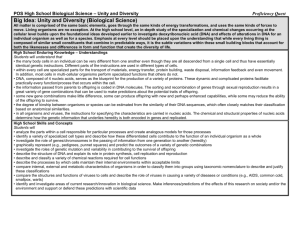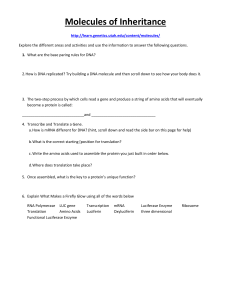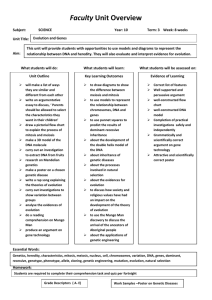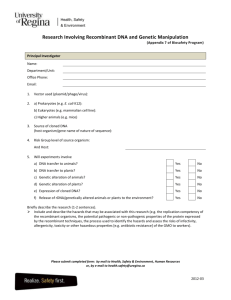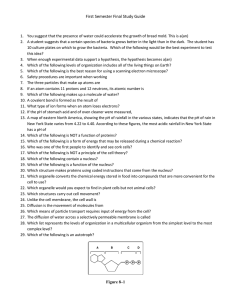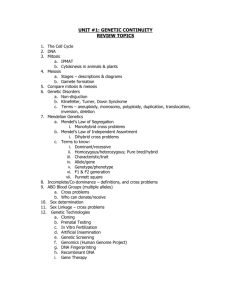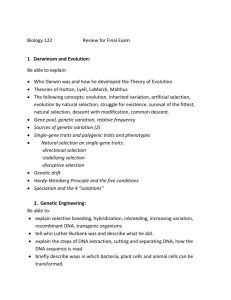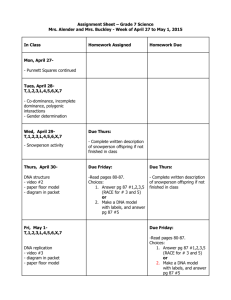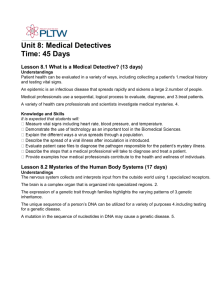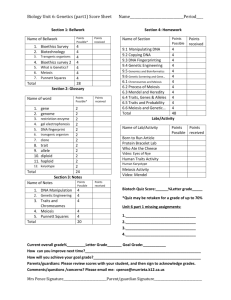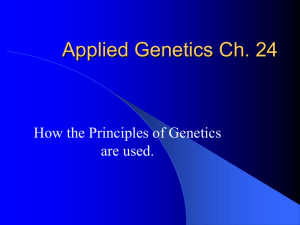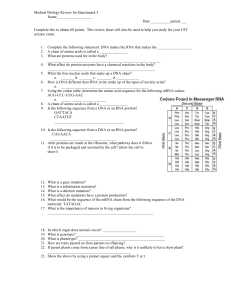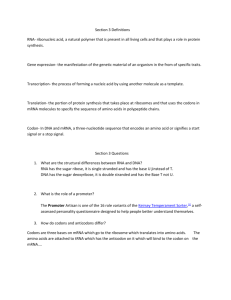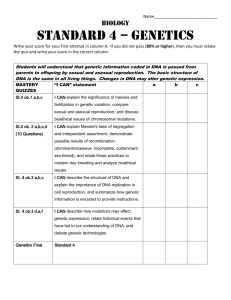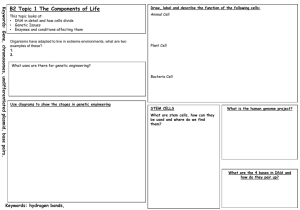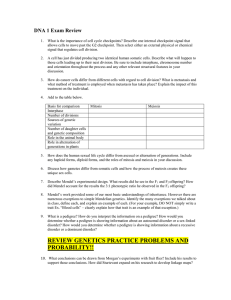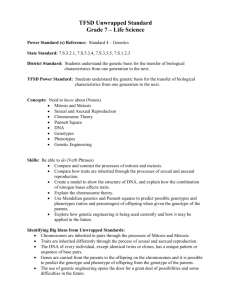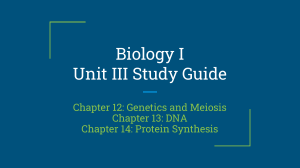Semester 2 Final Review
advertisement
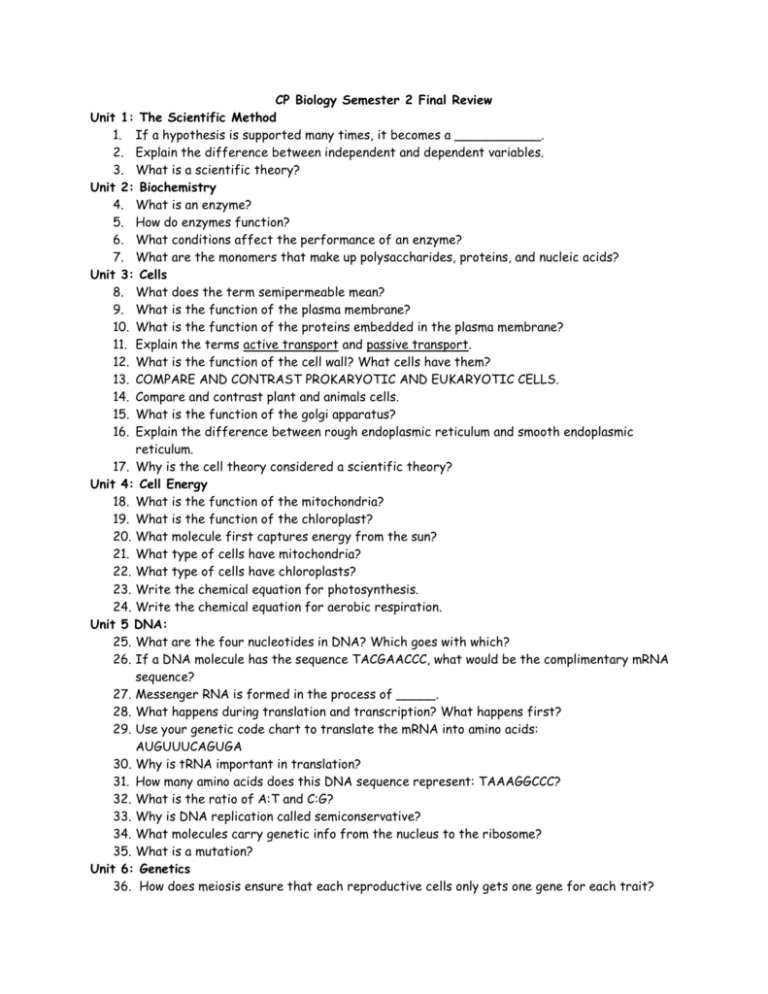
CP Biology Semester 2 Final Review Unit 1: The Scientific Method 1. If a hypothesis is supported many times, it becomes a ___________. 2. Explain the difference between independent and dependent variables. 3. What is a scientific theory? Unit 2: Biochemistry 4. What is an enzyme? 5. How do enzymes function? 6. What conditions affect the performance of an enzyme? 7. What are the monomers that make up polysaccharides, proteins, and nucleic acids? Unit 3: Cells 8. What does the term semipermeable mean? 9. What is the function of the plasma membrane? 10. What is the function of the proteins embedded in the plasma membrane? 11. Explain the terms active transport and passive transport. 12. What is the function of the cell wall? What cells have them? 13. COMPARE AND CONTRAST PROKARYOTIC AND EUKARYOTIC CELLS. 14. Compare and contrast plant and animals cells. 15. What is the function of the golgi apparatus? 16. Explain the difference between rough endoplasmic reticulum and smooth endoplasmic reticulum. 17. Why is the cell theory considered a scientific theory? Unit 4: Cell Energy 18. What is the function of the mitochondria? 19. What is the function of the chloroplast? 20. What molecule first captures energy from the sun? 21. What type of cells have mitochondria? 22. What type of cells have chloroplasts? 23. Write the chemical equation for photosynthesis. 24. Write the chemical equation for aerobic respiration. Unit 5 DNA: 25. What are the four nucleotides in DNA? Which goes with which? 26. If a DNA molecule has the sequence TACGAACCC, what would be the complimentary mRNA sequence? 27. Messenger RNA is formed in the process of _____. 28. What happens during translation and transcription? What happens first? 29. Use your genetic code chart to translate the mRNA into amino acids: AUGUUUCAGUGA 30. Why is tRNA important in translation? 31. How many amino acids does this DNA sequence represent: TAAAGGCCC? 32. What is the ratio of A:T and C:G? 33. Why is DNA replication called semiconservative? 34. What molecules carry genetic info from the nucleus to the ribosome? 35. What is a mutation? Unit 6: Genetics 36. How does meiosis ensure that each reproductive cells only gets one gene for each trait? 37. 38. 39. 40. If a body cell has 16 chromosomes, how many would a sex cell of the same organism have? What type of cell undergoes meiosis? What type of cell results from a fertilized egg? If a dog has a genotype of Bbbb, what are the possible combinations of genotypes that could be present in a gamete? 41. How can a lethal disease be passed from generation to generation? 42. Are mutations good/bad/both and are they natural or unnatural? 43. Explain why human males determine the sex of their offspring. 44. In fish, gold (G) is dominant to white (g). a.What are the possible genotypes in the offspring of 2 heterozygous goldfish? b. What percent of the offspring would be gold? 45. What is a sex-linked trait, and how does it affect inheritance from mother to son? Unit 7: Evolution 46. What is natural selection? 47. What is genetic drift, and in what populations would it be most likely to occur? 48. What is geographic isolation and how can it affect natural selection? 49. What is biodiversity and how does it affect life on earth during times of environmental change? Unit 8: Ecology 50. On an energy pyramid: A. Which level has the smallest number of organisms? B. Which level receives the most energy from the sun? C. What type of organism is found at the top? 51. What is an introduced species, and how can this affect on ecosystem? 52. During succession, why do the biotic factors change over time? 53. Explain the role of burning plant matter in the carbon cycle. 54. Explain the role of a decomposer in an ecosystem. 55. How can immigration and emigration affect a population? 56. What is biodiversity? 57. What is a population? 58. What is the role of photosynthesis and cellular respiration in the carbon/oxygen cycle? Unit 9: Diversity of Life 59. How does the nervous system work with other body systems? 60. What is the function of the nervous system? 61. What is the fight or flight response controlled by? 62. What is the function of a feedback loop? 63. What is a reflex? 64. What is the function of the skin? 65. What is a vaccination? 66. What is a virus? 67. How does HIV affect the body?

